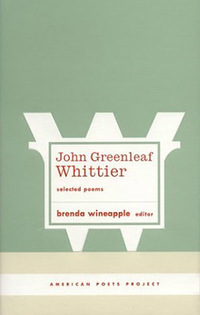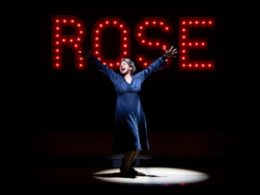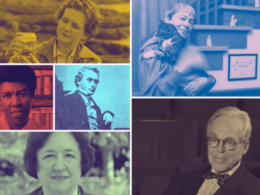
As The Two Palaverers, Recollecting Nemasket, and IM Blogn remind us, few things resemble life in times past more than being trapped indoors during a winter snowstorm. John Greenleaf Whittier wrote the classic account of the experience in his 759-line winter idyll “Snow-Bound,” published as a book in February 1866 and an instant bestseller. James Russell Lowell immediately appreciated its evocative nostalgia: “It describes scenes and manners which the rapid changes of our national habits will soon have made as remote from us as if they were foreign or ancient.”
In the poem a middle-aged narrator recaptures what he endured as a ten-year-old boy trapped by a two-day blizzard with his family and friends in a country farmhouse.
What matter how the night behaved?
What matter how the north-wind raved?
Blow high, blow low, not all its snow
Could quench our hearth-fire’s ruddy glow.
How did they pass the time? As Whittier explains in his headnote to the 1888 edition of the poem:
In my boyhood, in our lonely farm-house, we had scanty sources of information, few books and only a small weekly newspaper. Our only annual was the Almanac. Under such circumstances story-telling was a necessary resource in the long winter evenings. My father when a young man had traversed the wilderness to Canada, and could tell us of his adventures with Indians and wild beasts, and of his soujourn in the French villages. My uncle was ready with his record of hunting and fishing and, it must be confessed, with stories which he at least half believed, of witchcraft and apparitions. My mother, who was born in the Indian-haunted region of Somersworth, New Hampshire . . . told us of the inroads of the savages. . .
Most curious and comical of the poem’s “inmates” is the “not unfeared, half-welcome guest.” Whittier identifies this neighboring boarder in his headnote as:
Harriet Livermore, daughter of Judge Livermore, of New Hampshire, a young woman of fine natural ability, enthusiastic, eccentric, with slight control over her violent temper . . . She was equally ready to exhort in school-house prayer-meetings and dance in a Washington ball-room, while her father was a member of Congress. . . A friend of mine found her, when quite an old woman, wandering in Syria with a tribe of Arabs, who with the Oriental notion that madness is inspiration, accepted her as their prophetess and leader.
Whittier’s royalties were ten cents a copy and he ultimately collected more than $10,000 from sales of the bound volume of the poem.
Other classic winter poems:
“The Snow Man” by Wallace Stevens
“The Snow Storm” by Ralph Waldo Emerson
“Stopping by Woods on a Snowy Evening” by Robert Frost



